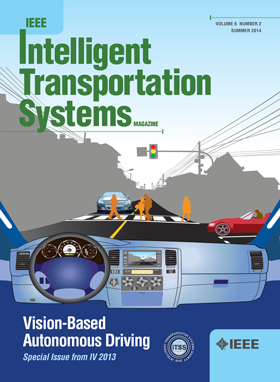Enhancing Federated Learning in Connected and Autonomous Vehicles Through Cost Optimization and Advanced Model Selection
IF 7.9
1区 工程技术
Q1 ENGINEERING, CIVIL
IEEE Transactions on Intelligent Transportation Systems
Pub Date : 2025-03-10
DOI:10.1109/TITS.2025.3546088
引用次数: 0
Abstract
With the rapid evolution of vehicular network technology, the integration of Machine Learning (ML) with Connected and Autonomous Vehicles (CAVs) presents both remarkable opportunities and formidable challenges. This paper addresses the crucial need for efficient ML model training in the context of Federated Learning (FL) within vehicular networks. Recognizing the limitations imposed by the tradeoff between the high energy cost at the local level with the performance problem at the global level, we propose an innovative approach that harmonizes cost optimization with strategic model selection. Our strategy primarily focuses on optimizing energy consumption during model training and updating at the vehicle end, thereby resolving the prevalent issue of limited end-user participation in FL due to high energy demands. Additionally, we introduce an advanced model selection method, prioritizing local model uploads and adaptively allocating bandwidth to clients with more extensive training data. This method enhances the efficiency and reliability of model updates, ensuring robust global model performance. We validate our approach through extensive simulations, demonstrating not only improved learning performance but also a significant reduction in energy consumption among participating clients.求助全文
约1分钟内获得全文
求助全文
来源期刊

IEEE Transactions on Intelligent Transportation Systems
工程技术-工程:电子与电气
CiteScore
14.80
自引率
12.90%
发文量
1872
审稿时长
7.5 months
期刊介绍:
The theoretical, experimental and operational aspects of electrical and electronics engineering and information technologies as applied to Intelligent Transportation Systems (ITS). Intelligent Transportation Systems are defined as those systems utilizing synergistic technologies and systems engineering concepts to develop and improve transportation systems of all kinds. The scope of this interdisciplinary activity includes the promotion, consolidation and coordination of ITS technical activities among IEEE entities, and providing a focus for cooperative activities, both internally and externally.
 求助内容:
求助内容: 应助结果提醒方式:
应助结果提醒方式:


